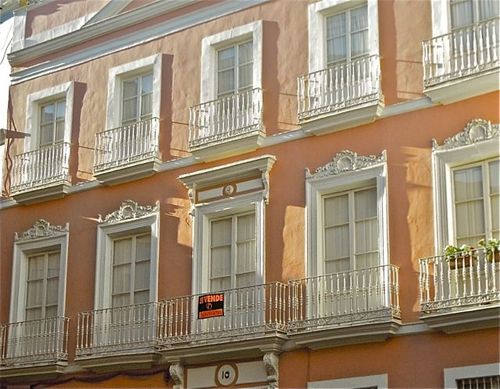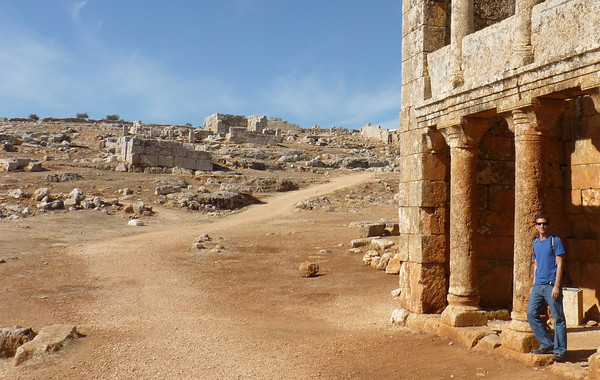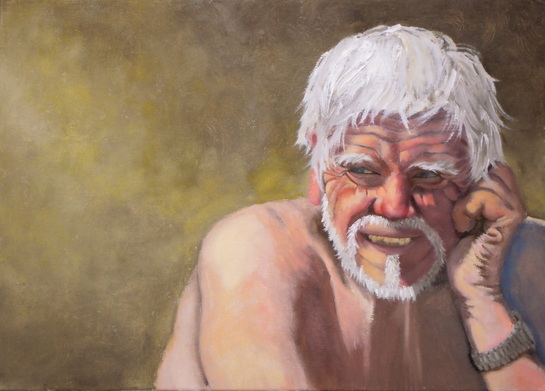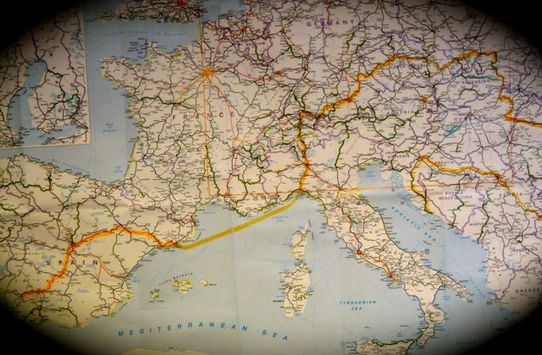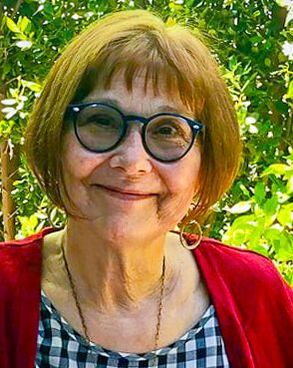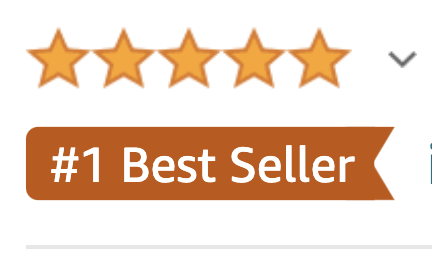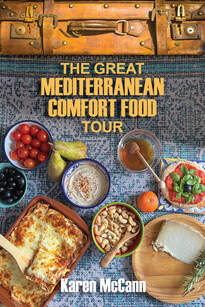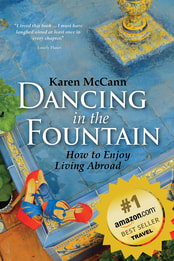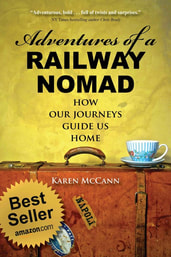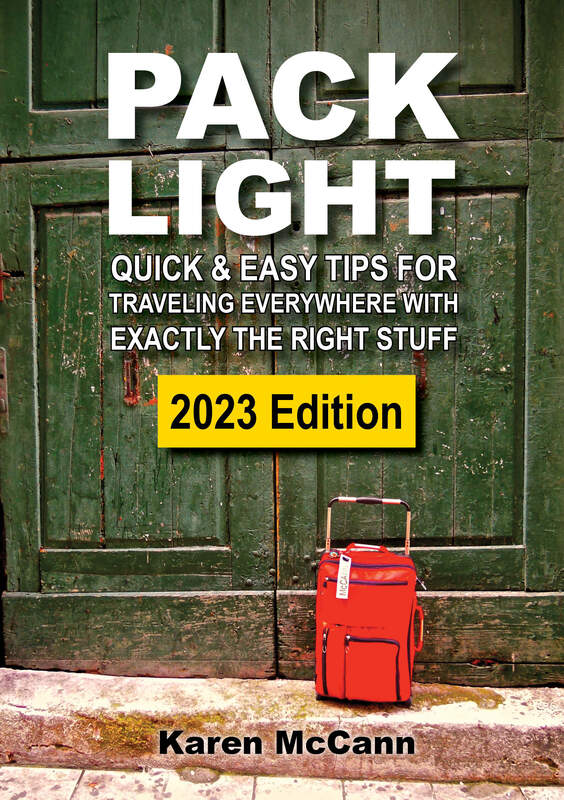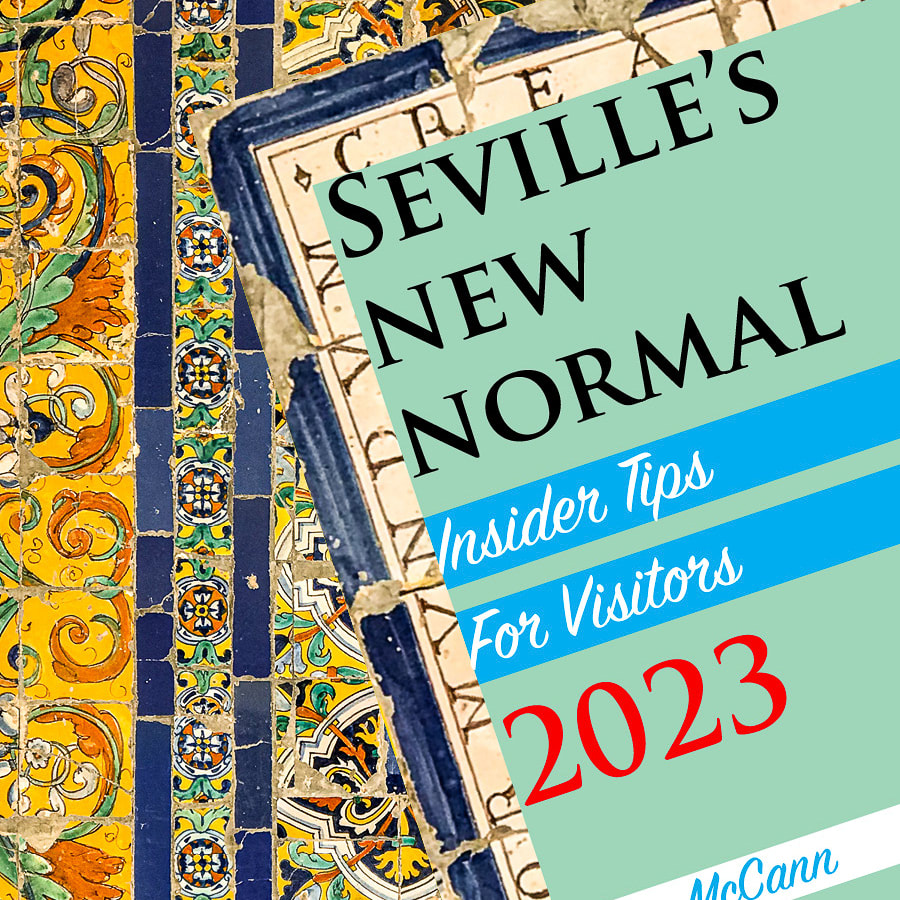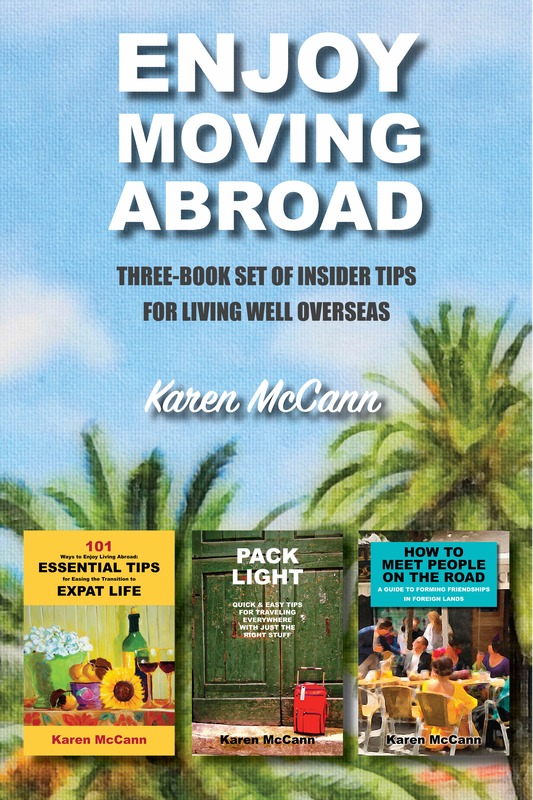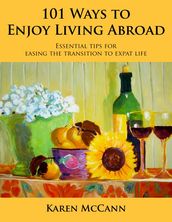|
I am often gobsmacked by the highly personal and/or utterly impossible questions my Spanish friends put to me. It’s perfectly normal for Sevillanos to ask, “What a nice apartment; how much do you pay for it?” or “Have you gained weight?” or “Who do you think is prettier, me or my daughter?” They expect an answer; evasions are considered rude. Once, out of the blue, my hairdresser said, “You don’t have any children. Is it because you don’t want them or can’t have them?” This was a bit forward, even for a Spanish woman, but it did lead to a discussion more interesting than the comparative merits of mousse versus hair spray. As a child, I was taught that it’s particularly bad manners to ask or answer questions about money. Lately this has placed me in an awkward position on various occasions when friends, acquaintances, even total strangers who write to me on my blog or Facebook ask how much it costs to live abroad. Since the only figures I can cite with any accuracy are my own household expenses, I often return rather evasive answers to these enquiries and do my best to change the subject. An apartment for sale not far from my barrio in downtown Seville. Cost is probably somewhere around 500,000 euros. Luckily for me (and the enquiring minds around me) others are far more forthcoming in these matters. I was delighted to discover a recent Wall Street Journal article called “The-Let’s-Sell-the-House-and-See-the-World Retirement” about Lynne and Tim Martin, who have taken to life on the road as “senior gypsies.” 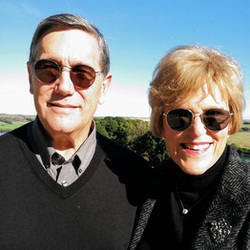 The Martins cheerfully share with everyone who reads the WSJ the details of their income and monthly budget, including a breakdown of what they pay for lodging, a cleaning person, groceries, dining out, entertainment and transportation in various cities around the world. Not surprisingly, the most expensive place to live was their original home in Southern California ($7750 a month); once they sold that, they began travelling between cheaper places, such as Mexico ($3,450 a month) and pricier European cities (about $6,500 a month). Their overall annual living expenses are likely somewhere around $65,000 to $70,000 a year. Lynne Martin has a blog called Home Free Retirement and a forthcoming book called Home Free, where you’ll be able to learn even more about their senior gypsy lifestyle. Don’t have the Martins’ income? Not to worry, you can live the expat lifestyle quite comfortably on far less. Despite my don’t-ask-don’t-tell policy, various friends – both working and retired – have volunteered enough information that I can calculate their income to be somewhere between $3,500 and $4,000 a month, or about $42,000 to $48,000 a year. This is still a substantial chunk of change, especially in these troubled economic times, but it shows you don’t have to win the Mega Millions lottery in order to think about moving overseas. Still finding the price tag a bit out of reach? You’ll want to read how Wandering Earl has been “Living Abroad for Less than $1000 a Month” since 1999. In this 2010 blog post he wrote, “I’ve almost never, during the past 11 years, spent more than $1000 USD in one single month of living overseas. And I’m not always a super-frugal nomad! If there’s something I want to do, I’ll pay for it without worrying too much about the cost and rarely have I had to skip out on something because it was too expensive.” Wandering Earl visiting the Dead Cities in Syria I was recently giving a talk about my book, Dancing in the Fountain, to a group of retirees in Sausalito, California. Most groups are dying to talk about the Spanish lifestyle, food, wines, flamenco dancing, tapas bars, late-night parties, singing in streets and dancing in the fountain, but this one group was fixated on how much it cost to live in Europe. I explained that’s a “how-high-is-up?” question that depends on factors such as where and how you want to live; yes, a luxury penthouse in London or Rome is astronomical, but if you chose sensibly, Europe can be quite affordable. However they “knew” it had to be terribly expensive, and nothing I said could convince them otherwise.
At the end of my talk, one woman left grumbling, “I could never live abroad. It just plain costs too much.” Later I looked up Sausalito and found the cost of living there is more than twice the national average; the median household income is more than $109,000 and the median cost of a home is more than $900,000. Moving out of Sausalito, whether to another part of California or to, say, southern Spain could cut their cost of living in half. But I’ll never convince those retirees of that. Once again, my mother has been proved right; no good comes of answering questions about money. Not only is it none of their beeswax, nobody believes a word you say anyway. Luckily, whenever this subject comes up from now on, I can simply refer people to this blog and let it go at that.
5 Comments
Last week, my friend Victoria Twead wrote to ask if I’d like to take part in the Next Big Thing online event. She’s the author of the delightful Chickens, Mules and Two Old Fools, which my husband Rich, who has trouble remembering book titles, calls “Two Old Mules.” Vicky explained that the Next Big Thing is a way for authors and bloggers to share news about their most exciting upcoming projects. In her case, it’s her sixth book, Two Old Fools on a Camel. I can’t wait to discover what Rich is going to call that one. What's My Next Big Thing? I'm glad you asked. Next summer, Rich and I are packing our suitcases, walking to the train station near our Seville apartment, and hopping a train that will, eventually, take us to Eastern Europe. Our route, still being planned with the aid of a huge railway map taped to our kitchen wall, is likely to include the Czech Republic, Slovakia, Hungary, Slovenia, Croatia, Romania, Bulgaria, maybe Albania and a few other countries. We thought it would be fun to drop in on Transylvania, the Carpathian Mountains, Bulgaria’s recently excavated vampire graves, and the Czech Republic’s Houska Castle, which for centuries has been considered the real and literal “Gates of Hell.” Yes, we’re packing plenty of garlic and crucifixes. Not that we believe a word of all that superstitious claptrap, of course. But there’s no point in taking foolish chances... The trip will be the subject of a whole series of blogs about the weird and wacky things we stumble into along the way. Will it turn into a book as well? Too early to say. Book concepts are like cats; you can’t force them to engage with you. Your best bet is to ignore them until they climb up into your lap and clamor for your attention. So for the moment I am thinking of this as an adventure chronicled in a series of blogs. We’ll see where it wants to go after that. The Next Big Thing online event wants me to answer specific questions about my project, so here goes: What is the working title of your project? My travel posts always appear on my blog, “Enjoy Living Abroad.” If this project should eventually turn into a book, I briefly toyed with using the title The Next Big Thing. But a quick glance at Amazon revealed this is already the title of a romance novel, an adventure game, a novel about a reality show called From Fat to Fabulous, a country music album, a World Wrestling Foundation music album (who knew?) and a self-help workbook that someone ordered used from Amazon and then felt a little bitter about the fact that it was already filled in by another couple, requiring the extensive use of white-out. I don’t want to have to compete with all that! I’ll worry about book titles later. Where did the idea come from for the blog? Last spring, Rich and I were sitting on a tiny, pitching, jam-packed Portuguese ferry in the pouring rain, en route Culatra Island to show Jan the Beachcomber photos of a painting I’d done of him. “I love this kind of travel,” Rich suddenly said to me, “I miss this kind of travel. It’s time for another big adventure.” By the time the ferry reached the island, we had hatched the plot for our train trip through Eastern Europe What genre does your blog fall under? Travel. If it becomes a book and then a movie, which actors would you choose to play your characters? I’m thinking Annette Bening, as people have occasionally said I look like her. I’m sure she gets the same thing at parties: “Say, aren’t you the woman who wrote that book, Dancing in the Fountain...?” Rich can’t decide between Brad Pitt and the guy who plays Neal Caffrey on White Collar. Your thoughts? What is the one-sentence synopsis of your blog series? Karen and Rich voluntarily travel to places in Eastern Europe no one with any sense would ever go. If it becomes a book, will it be self-published or represented by an agency? I prefer self-publishing, so I’ll probably go that route. Although for the right price, I suppose I could be bought... How long will you be working on this blog series? Our trip will take about three months, but I’ve already started doing the research and recently posted a blog about some preliminary discoveries: Bulgaria, So Much More Than Vampire Graves (with recipes). Scroll down to see it below. What other works would you compare this story to within your genre? There are lots of great travel blogs out there. One of my favorites is WanderingEarl.com, written by a guy who has been on the road since 1999. I’ve never met Earl, but we correspond occasionally, and he's suggested meeting up with us in Romania next summer. In fact, we hope to meet lots of expat and local travel bloggers along the way, people who know the territory and can introduce us to eccentric people and places. Who or what inspired you to write this blog series? Rich reminded me that we’re both happiest when we have a grand adventure on the horizon. What else about your project might pique the reader’s interest?
We’re going to see how far off the beaten path we can get. Do you know anyone who’s been to the Carpathian Mountains? Me neither. And we hope to get to the bottom of various mysteries. Do Romanian grandmothers still cut the baby’s umbilical cord with a reaping-hook these days? What were the experiments the Nazis did at the old Houska “Gates of Hell” Castle? Why is Earl wandering? Inquiring minds want to know, and your intrepid reporter is working the beat. More to follow. And now it's my pleasure to pass the torch on to five of my fellow writers, so that they can tell us about their Next Big Thing. Susan Pohlman is the author of the award-winning Halfway to Each Other, the remarkable and moving true story of a couple on the brink of divorce who restore their marriage during a year in Italy. Based in Arizona, Susan is a film writer, freelance journalist and writing instructor/coach who leads writing retreats in Europe. In addition to her personal blog, she recently launched Expat Chat, where I was fortunate enough to be her first guest blogger. She's just completed a new book, and I'm looking forward to hearing all about it in her Next Big Thing blog. Joan Fallon chose to reinvent her life by moving from Scotland to Andalucia, where she wrote the critically acclaimed Daughters of Spain about the lives of Spanish women during the years of Franco's dictatorship. Since then, she's published three novels set in Spain and is about to publish her fourth. I was lucky enough to be an advance reader of her upcoming book Santiago Tales, which interweaves the stories of various pilgrims and provides a richly detailed description of what it's really like to walk the legendary Camino de Santiago today. Lots of people think about living abroad, but what about working overseas, in an era when jobs are notoriously hard to come by? Susanna Perkins has written a wonderful free e-book called Untether Yourself: 5 Portable Careers to Support You Overseas, in which she describes income-generating activities you can develop now, before you leave home, and take with you almost anywhere in the world. Her blog, Future Expats Forum, is packed with the kind of practical advice I wish I'd had before setting off for Spain. Polly Burns lives in the southeast of England, where she raises her young son, longs for sunnier, more exotic climes and writes a quirky and eclectic blog called Caught Writing. Her principle subjects are writing and travel, two things close to my heart. She's confided in me that her Next Big Thing involves taking her son for an extended stay in southern France, so the two of them can really immerse themselves in another culture. As you can imagine, I am all for this plan, and can't wait to read all about it in her forthcoming blog. I've known Cat Gaa since she arrived in Seville five years ago and enthusiastically embraced the lifestyle of a guiri (foreigner), teaching English to Spanish kids, travelling throughout Spain, exploring the food and culture, and writing her Sunshine and Siestas blog. Her posts deal with such vital survival techniques as how to eat tapas like a Spaniard, how to cook delicacies such as oreja a la plancha (grilled pigs' ears), and how to emerge victorious when dealing with the Spanish bureaucrats controlling those all-important residency visas. This is a guest post by Chris Brady, the NY Times bestselling author of A Month of Italy: Rediscovering the Art of Vacation and several other titles. You may also remember Chris as the man who penned the lovely words, "McCann's writing is warm, inviting, immediately charming, and constantly entertaining. Her narrative was so good I found myself wanting to hear more about Cleveland! Now THAT's good travel writing!" Obviously a man of discerning taste. Chris and I thought it would be fun to exchange blogs, so I invite you to sit back and enjoy his piece here, and then to visit his site and read my blog, The Joy of Eating. Happy reading! 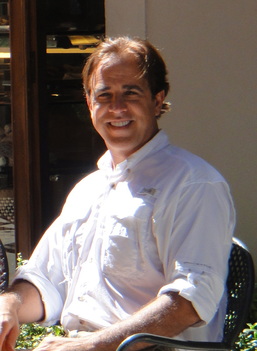 “I looked at the people and buildings of Montalcino with eloper’s eyes, knowing what they didn’t: I was about to take flight and leave them behind. A couple of days of hassle and I would be dropped back into my previous life like an apparition. The razor blades providing death to the artist by a thousand cuts of emails, texts, faxes, voice mails, ringing phones, commitments, meetings, and deadlines were about to be given their chance at revenge. They wouldn’t care what we had seen, what we had felt, how our time away had changed us. They wouldn’t feel the metamorphosis that had taken place deep inside. I knew I was entering a transformation as necessary as the digitizing of a document to enable faxing. First I had to withdraw ... next came the dread of returning to the violence of the normal. Finally would come the yearning for the familiar and the needed awakening from the dream...” This excerpt from my book, A Month of Italy: Rediscovering the Art of Vacation, attempts to deal with the inevitable emotional transitions we travelers are forced to confront as we translate our bodies from one location to another. Something in us resists the change of scenery and lingers behind, especially if the time spent was particularly moving and meaningful. 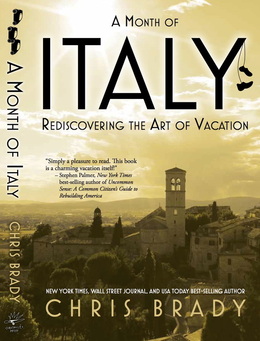 Karen McCann deals with this in her fantastic book, Dancing in the Fountain: How to Enjoy Living Abroad. "Finally, during my third summer in San Anselmo, it occurred to me that I was fixated on viewing California not as it was, but through the lens of my life in Spain. While the rest of me was arriving in San Anselmo, I’d left my head and heart back in Seville. I was not mentally unpacking my bags. Despite living just a short distance from the communities in which I grew up, went to college, got married, and had family all over the place, I felt more like a foreigner than I did in Spain — or Cleveland, or Boston, or any of the other places I’d lived." If you’ve ever spent meaningful and significant amounts of time “elsewhere,” you know exactly what Karen is describing. There is a power of place that gets inside us like the smell of spices in clothing and can’t readily be removed just because we’ve carted ourselves to a different location. As Karen says, we must “mentally unpack our bags.” I would suggest the following possible steps to take to help you accomplish this “mental unpacking:” 1. Think of people first. By far, the easiest way to transition to the next place is to put yourself in mind of the people with whom you’ll be able to once again spend time. Perhaps there are old relationships that can be rekindled or new ones to be built. 2. Anticipate adventure. Next, it is helpful to focus on new milestones and experiences to be sought in the next phase of your existence. These things can only take place if you are “there,” so be glad that you are! 3. Muster courage. There is something inside each of us that longs for everything to stay exactly the same forever. This cannot be. We must face this reality with courage and push ourselves through to the next phase. It is only on the other side of trepidation that exhilaration exists. 4. Cultivate memories. Leaving a place behind doesn’t mean losing it. Memorialize your time in each place with photos, journals, and memories so that much of what is gained can be captured, preserved, and repeatedly enjoyed. 5. Promise to return. It’s a bit of a sleight of hand to leave a place emotionally by promising to return, but I’ve found this to work extremely well. And don’t worry about that old traveler’s fable that says never to return to a beloved place because it will never be as good the second time. This is patently false. All of this, perhaps, can be summed up in one phrase: be where you are. In other words, wherever you go, make sure you are there. In the Preface to her book, Karen handles this nicely. "But as it happened, I loved Cleveland (yes, I did!). I had moved around a lot over the years, propelled by fluctuations in the family fortunes and later my own, and I had learned that I could make a good life for myself practically anywhere. One thing I know to be true: the secret is mentally unpacking your bags. Or, as the Buddhists like to put it, being here now." May you travel widely, experience deeply, and manage to be where you are wherever you go. Chris Brady is the NY Times bestselling author of A Month of Italy: Rediscovering the Art of Vacation and several other titles. Listed as the world’s #11 Leadership Guru, he was voted one of the Top 100 Authors to Follow on Twitter. Chris also writes an eclectic blog on the general theme of “living a life that matters.” Incidentally, Chris is also an avid motorized adventurer, world traveler, humorist, community builder, business owner, soccer fan, and dad. He has one of the world’s most unique resumes, including experience with a live bug in his ear, walking through a paned-glass window, chickening out from the high dive in elementary school, destroying the class ant farm in third grade, losing a spelling bee on the word “use,” jack-hammering his foot, and, more recently, sinking his snowmobile in a lake. Chris and his wife Terri have four children and live in North Carolina. |
This blog is a promotion-free zone.
As my regular readers know, I never get free or discounted goods or services for mentioning anything on this blog (or anywhere else). I only write about things I find interesting and/or useful. I'm an American travel writer living in California and Seville, Spain. I travel the world seeking eccentric people, quirky places, and outrageously delicious food so I can have the fun of writing about them here.
My current project is OUT TO LUNCH IN SAN FRANCISCO. Don't miss out! SIGN UP HERE to be notified when I publish new posts. Planning a trip?
Use the search box below to find out about other places I've written about. Winner of the 2023 Firebird Book Award for Travel
#1 Amazon Bestseller in Tourist Destinations, Travel Tips, Gastronomy Essays, and Senior Travel
BLOG ARCHIVES
July 2024
CATEGORIES
All
|
